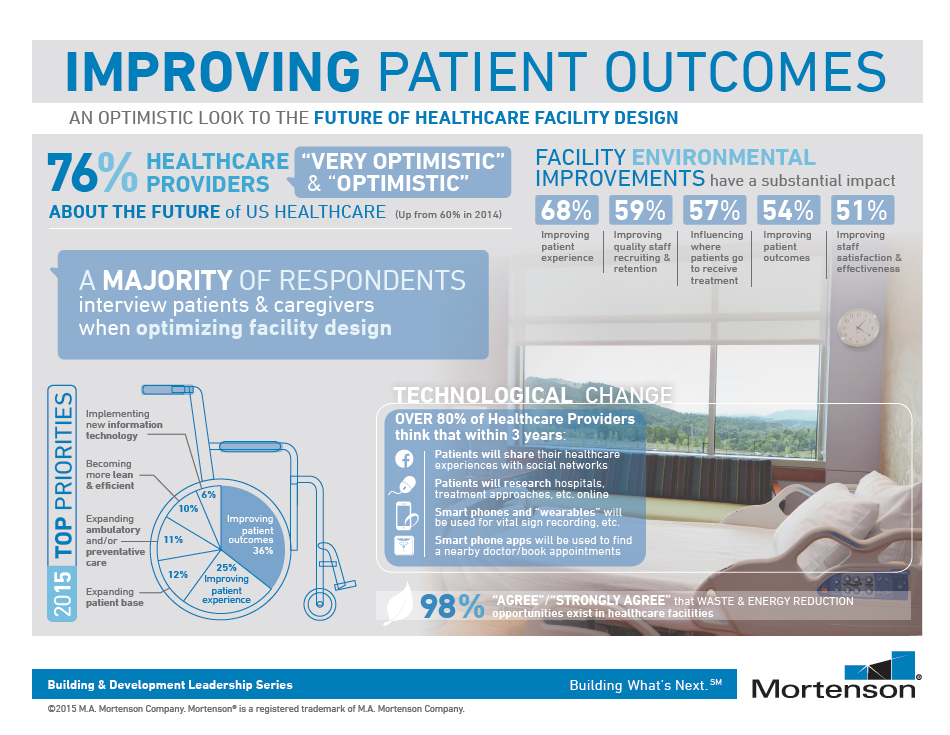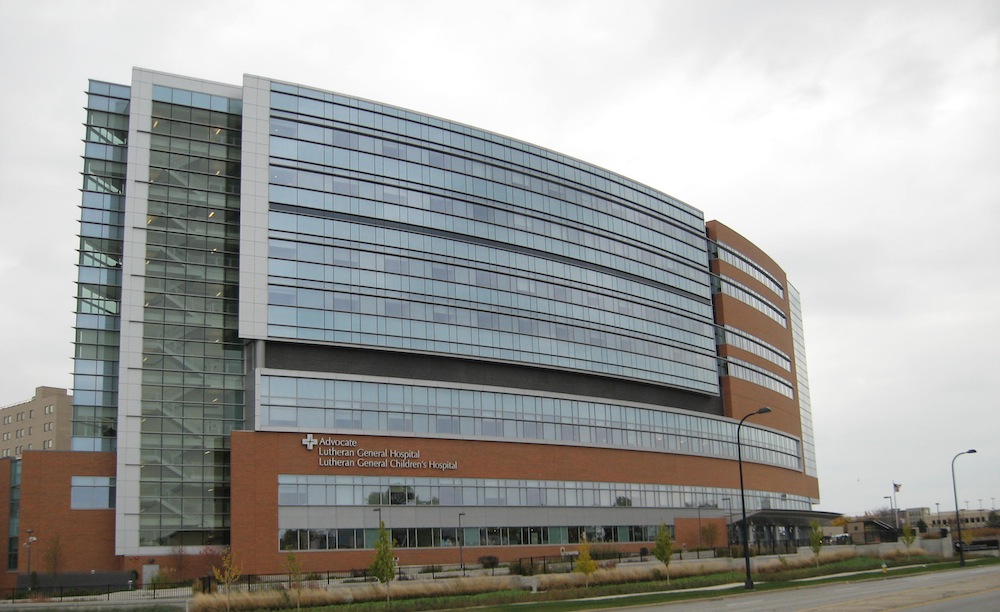Despite overall optimism in healthcare, support for the Affordable Care Act (ACA) has lessened, according to a study from Mortenson.
Nearly eight out of 10 healthcare providers feel that legislation needs significant changes or revisions. The 2015 Mortenson Healthcare Industry Study found that only one-third of providers think that the ACA would lower the per-patient cost of healthcare.
But, providers are confident in advances in facility design, IT, waste and energy reduction, and environmental improvements, and they believe that transparency and patients’ concern in their own wellness will improve the sector as a whole. The study says that 76% of healthcare providers feel “very optimistic” or “optimistic” about the future of healthcare.
The report also found that providers predict that virtual care will become more common, and that providers link physical healthcare facilities and environments with patient outcomes.
"The healthcare market is still in the process of adapting to a new normal," said Bob Nartonis, SVP and National Healthcare Market Leader at Mortenson, in a statement. "There are several challenging dynamics facing healthcare service providers today but they are optimistic as a whole. We are encouraged to see healthcare facility design, interest in the patient experience, and changes in technology continuing to drive innovation in the market."
The full report is available here.

Related Stories
| Mar 19, 2014
How to develop a healthcare capital project using a 'true north charter'
Because healthcare projects take years to implement, developing a true north charter is essential for keeping the entire team on track and moving in the right direction.
| Mar 18, 2014
6 keys to better healthcare design
Healthcare facility planning and design experts cite six factors that Building Teams need to keep in mind on their next healthcare project.
| Mar 18, 2014
How your AEC firm can win more healthcare projects
Cutthroat competition and the vagaries of the Affordable Healthcare Act are making capital planning a more daunting task than ever. Our experts provide inside advice on how AEC firms can secure more work from hospital systems.
| Mar 13, 2014
Do you really 'always turn right'?
The first visitor center we designed was the Ernest F. Coe Visitor Center for the Everglades National Park in 1993. I remember it well for a variety of reasons, not the least of which was the ongoing dialogue we had with our retail consultant. He insisted that the gift shop be located on the right as one exited the visitor center because people “always turn right.”
| Mar 12, 2014
14 new ideas for doors and door hardware
From a high-tech classroom lockdown system to an impact-resistant wide-stile door line, BD+C editors present a collection of door and door hardware innovations.
| Feb 21, 2014
Naturally ventilated hospital planned in Singapore
The Ng Teng Fong General Hospital will take advantage of the region's prevailing breezes to cool the spaces.
| Feb 18, 2014
Study: 90% of healthcare providers say Affordable Care Act is 'step forward,' but major revisions needed
Providers are excited about opportunities to address long-term health issues in the U.S., but worries about the transition persist, according to a new study by Mortenson Construction.
| Feb 17, 2014
Lawmakers may take away control of Florida hospital project from the VA
The project is $100 million over budget and has missed its scheduled completion date.
| Feb 14, 2014
Crowdsourced Placemaking: How people will help shape architecture
The rise of mobile devices and social media, coupled with the use of advanced survey tools and interactive mapping apps, has created a powerful conduit through which Building Teams can capture real-time data on the public. For the first time, the masses can have a real say in how the built environment around them is formed—that is, if Building Teams are willing to listen.
| Feb 13, 2014
3 keys to designing freestanding emergency departments
Having physically disassociated from a central hospital, FEDs must overcome the particular challenges associated with a satellite location, namely a lack of awareness, appeal, and credibility. Gresham, Smith & Partners' Kristin Herman-Druc offers three keys to success.
















